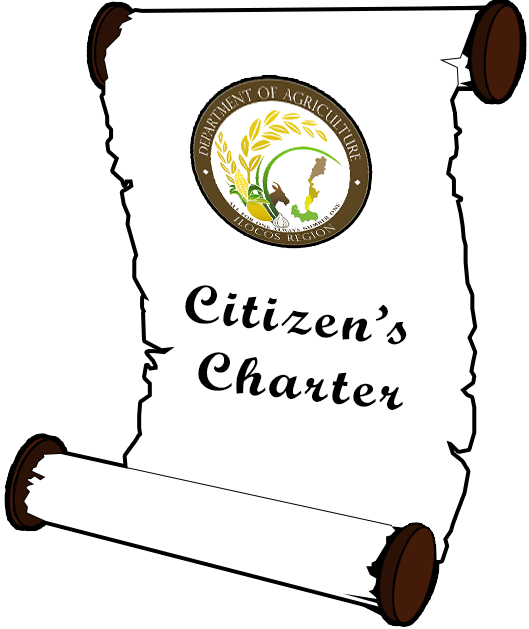“The success and failure of rice production mainly depends on the utilization of high quality seeds. This maybe the very reason why DA is focusing all its effort to strengthen its seed production component.”
Ms. Analiza Ramos, Regional Seed Coordinator of DA-RFO I made this emphasis in her discussion on the seed components of the Rice Program during the First Quarter Rice Program Assessment and Planning Workshop held in Lingayen Pangasinan and Caoayan Ilocos Sur last March 4-5 and March 6-7, 2014 respectively.
In her updates on the seed component of the rice program, Ms. Ramos informed the project implementers from the various LGUs in the region about the protocols and guidelines regarding the implementation of the buffer seed stocking project, community seed banks, as well as the hybridization program. These projects aim to address seed-related concerns of the farmers especially now that DA has already faced-out its seeds subsidy program while promoting the use of quality seeds to ensure higher production and consequently the income of the farmers.
Likewise, it ensured the availability of high quality rice seeds that can be accessed by the farmers during times of calamities and unforeseen events which has an adverse effect to rice production.
On her discussion on the Buffer Stocking project, Ms. Ramos required the LGUs to submit damage report with the masterlist of affected farmers to avail of the DA-RFO’s one bag of certified seeds at 40 kgs. per bag per hectare intervention. According to Ms. Ramos, farmers having farms less than a hectare shall be allocated proportionately following the rate of 40 kg/ha. certified seeds requirement.
Based on her presentation, there are a total of 15,722 bags of high quality seeds positioned in the four provinces out of the 16,620 bags target as of CY 2013. “This year (2014), the region targeted another 16,620 bags for distribution during typhoons and other calamities,” Ms. Ramos added.
On the other hand, under the Community Seed Bank (CSB) Program, Ms. Ramos informed the group that there were 2,172 bags of palay positioned in the four provinces in addition to the 800 bags in the provinces of Pangasinan and La Union in 2013. “The regional target for 2014 is 3,308 bags,” Ms. Ramos said.
Aside from the seeds to be distributed, a total of 15 LGUs have intended to avail of the rehabilitation/construction and establishment of warehouses under the program while 11 municipalities have applied for the establishment, repair and rehabilitation of rice post harvest facilities as covered by the program.
Managed by the Irrigators Associations, Farmers/Peoples Organization and Non-Government Organizations, the CSB project is intended to farmers who have no access and cannot afford to buy quality seeds living in a marginalized community and were not able to get intervention from the current formal seed system. Registered seed shall be distributed to the farmer-beneficiaries as starter seeds while training assistance shall be provided to them along with the provision of seed storage facilities, harvest and post harvest equipment.
“These bags of seeds were already stored at the DA-warehouses located at the Pangasinan Provincial Center in Sta. Barbara, Pangasinan, ILIARC Station in Sapilang, Bacnotan, La Union and Dingras Warehouse in Cali, Dingras, Ilocos Norte,” Ms. Ramos said.
To avail of the CSB project, Ms. Ramos required the LGUs to submit the post-masterlist of beneficiaries as well as the Memorandum of Agreement of the CSB warehouse duly signed by the representative of the cooperatives or association involved in the program since the project will be given as grant to the beneficiaries.
Meanwhile, the hybridization program which aims to promote high quality and high yielding public hybrid seeds benefits farmers under irrigated areas whom were identified, validated and recommended by the DA-RFO I in coordination with the Local Government Units and the Irrigator’s Association.
Implemented using the plant now pay later scheme of providing hybrid seeds to farmer-beneficiaries, this project sustains the hybrid seed production of PhilRice. To materialize the program, seeds shall be distributed based on the pre-masterlist submitted by the LGUs through the Agricultural Extension Workers where farmer-beneficiaries are bonded with a Memorandum of Agreement that he/she will re-pay the seeds after harvest.
To ensure that repayments shall be made on time, Treasurer of the Farmers Association is tasked to collect repayments in the form of cash with P3,500 per bag for public hybrid and P4,500 per bag for private hybrid seeds. Collected payments shall be used as “roll-over-funds” within the association for the procurement of hybrid seeds that shall be used for the next cropping season.

